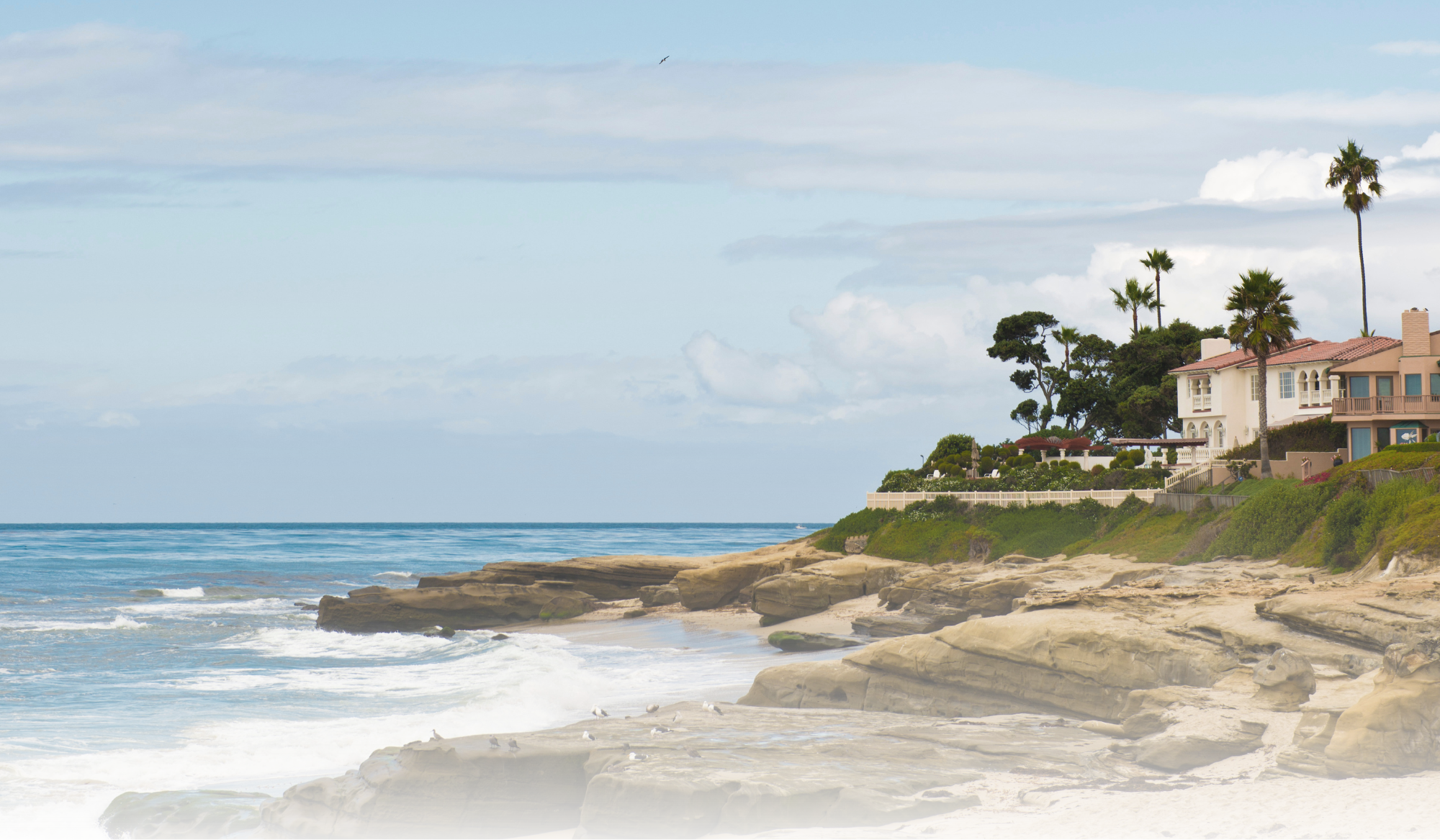Short-Term Rentals in San Diego: A Helpful Guide

September, 12, 2024 | Information compiled & article written by Heather Connor, REALTOR®
San Diego, with its beautiful beaches and year-round temperate weather, has become a popular destination for short-term rentals (STRs). However, operating an STR in the city comes with specific regulations and requirements, especially in the past few years. This helpful guide outlines some of the key aspects of understanding the many nuances to operating a short-term rental in the City of San Diego.
What is a Short-Term Rental?
A short-term rental (STR) in San Diego is defined as the occupancy of a dwelling unit or part thereof for less than one month. The San Diego Municipal Code defines a month as a period of consecutive days from the first calendar day of occupancy in any month to the same calendar day in the next month following, or the last day of the next month following if no corresponding calendar day exists. Just note that third-party booking platform Airbnb states the Transient Occupancy Tax will be collected for stays 30 days or less. Click here to view the help article on Airbnb’s Occupancy Tax and Remittance.
Examples of STRs include:
• Entire homes or apartments
• Private rooms in a residence
• Shared rooms in a residence
It’s important to note that certain types of properties cannot be used as STRs:
•Accessory Dwelling Units (ADUs) built after September 2017 are prohibited from use as STRs
• Recreational vehicles, campers, or temporary structures (e.g., tents, sheds, treehouses) cannot be used for STRs

SUNSET DURING A LOW TIDE AT SUNSET CLIFFES IN SAN DIEGO CLAIFORNIA BY JAMES LEE | UNSPLASH
What areas in San Diego does the STRO License cover?
The Short-Term Residential Occupancy license does not apply to San Diego County, but rather the City of San Diego. You will note that there are areas such as Carlsbad, Chula Vista and Oceanside respectively have different STR rules per their own governing bodies.
Short-Term Residential Occupancy (STRO) License
As of May 1, 2023, all STR operators in San Diego are required to obtain a Short-Term Residential Occupancy (STRO) license. There are four tiers of licenses:
- Tier 1 – Part-Time: For STRs rented for an aggregate of 20 days or less per year. The host does not need to reside onsite during the STRO.
- Tier 2 – Home Sharing: For hosts renting a room or rooms in their primary residence for more than 20 days per year. The host must reside onsite during the STRO, but may be absent for up to 90 days per calendar year.
- Tier 3 – Whole Home (excluding Mission Beach): For whole-home rentals outside the Mission Beach area, rented for more than 20 days per year where the host does not reside onsite.
- Tier 4 – Mission Beach Whole Home: Specifically for whole-home rentals within the Mission Beach Community Planning Area.

SAN DIEGO STRO LICENSE TIERS & CURRENT STATUS | ILLUSTRATION COURTESY OF HEATHER CONNOR, REALTOR®
License Requirements and Limitations
• Hosts can only hold one license at a time and may not operate more than one dwelling unit for STRO at a time within the City of San Diego.
• Licenses are not transferrable between owners or properties.
• Tier 3 licenses are limited to 1% of San Diego’s total housing units outside the Mission Beach Community Planning Area.
• Tier 4 licenses are limited to 30% of the Mission Beach Community Planning Area’s housing units.
• Tier 3 and Tier 4 rentals must be utilized for a minimum of 90 days each year to maintain the license.
• Guests booking Tier 3 or Tier 4 STROs must stay for a minimum of two nights.
To apply for a license, hosts must:
• Have a valid Transient Occupancy Tax (TOT) certificate
• Be current on TOT payments
• Have paid their Rental Unit Business Tax
• Have no pending enforcement actions for violations of the San Diego Municipal Code

Taxes and Fees
STR operators in San Diego are responsible for collecting and remitting several taxes and fees:
1. Transient Occupancy Tax (TOT): 10.5% of the listing price, including any cleaning fee, for reservations 30 nights and shorter. This tax applies to all STRs in San Diego.
2. Tourism Marketing District (TMD) assessment: 2% for lodging businesses with 70 or more rooms. This typically doesn’t apply to individual STR operators but is relevant for larger properties.
3. Rental Unit Business Tax: An annual tax for property owners who rent out their property for more than 6 days in a calendar year. The tax comprises a base fee and a per-unit fee.
4. Business Tax: Required for hosts who are not the property owners. The annual fee is based on the number of employees:
• $34 for businesses with 12 employees or fewer
• $125 plus $5 per employee for businesses with 13 employees or more
Application and license fees for STRO licenses are as follows:
• Tier 1: $25 application fee, $100 license fee
• Tier 2: $25 application fee, $225 license fee
• Tier 3 and Tier 4: $70 application fee, $1,000 license fee

TORREY PINES GLIDERPORT BY TRICAOLE | GETTY IMAGES
Host Responsibilities
STR operators in San Diego have several important responsibilities:
1. Obtain and display the STRO license and TOT certificate.
2. Post contact information visible from the street:
• A notice (8.5 x 11 inches) must be posted on the exterior of the dwelling unit, visible from the sidewalk or public right-of-way.
• The notice must include the TOT certificate number, STRO license number, and contact information for the host or local contact and the City of San Diego Code Enforcement Division.
3. Respond to complaints within one hour:
• The host or a designated local contact must be available to respond to complaints in person or by telephone within one hour.
• They must take action to resolve any issues or nuisances reported.
4. Provide guests with a “Good Neighbor Policy”:
• This policy should advise guests on local rules and expectations during their stay.
5. Complete human trafficking awareness training and post information for guests:
• Hosts must complete a human trafficking awareness course and maintain proof of completion.
•Guidance for guests to report human trafficking must be posted in a conspicuous location within the dwelling unit.
6. Submit quarterly reports (for Tier 3 and Tier 4 licenses):
• These reports must demonstrate the utilization of the STRO for a minimum of 90 days per year.
7. Maintain records:
• Hosts must keep records of their STR activities, including guest information, dates of stay, and payment details, for at least four years.

BEACH FRONT PROPERTY BY MIKEDABELL | GETTY IMAGES
Hosting Platform Requirements
Platforms like Airbnb and VRBO are also subject to requirements under the San Diego STRO ordinance:
1. Provide hosts with information about their responsibilities under the City’s STRO Ordinance.
2. Only process transactions for licensed STRs:
• Platforms must verify that a property has a valid STRO license before allowing bookings.
3. Collect and remit TOT to the city:
• If the platform collects rent from guests, it must also collect and remit the appropriate TOT.
4. Provide monthly data reports to the city:
• These reports must include various data points for all listings in San Diego.
5. Maintain records:
• Platforms must keep records of all STRO transactions for four years and provide them to the City upon request.

Enforcement and Compliance
The City of San Diego takes compliance with STRO regulations seriously:
• Operating an STR without a license after May 1, 2023, is a violation of the STRO ordinance and may result in regulatory actions, including fines and penalties.
• Failure to comply with STRO requirements may jeopardize a host’s ability to obtain or renew an STRO license in the future.
• Citizens can report potential violations through the City’s Get It Done app or by contacting the Building and Land Use Enforcement (BLUE) team.
I want to highlight this important point as it can be a costly lesson: Operating a short-term rental in San Diego requires careful attention to regulations and ongoing responsibilities. As well, it should be added that all potential hosts are aware of the ramifications of rentals that surpass the one-month time-frame and how it changes the guest status under landlord/tenant law in California as well as the new Ordinances in the City of San Diego.

SAN DIEGO BRIDGE BY ELLA BAR | GETTY IMAGES
If you are a current property owner or are a prospective buyer of a short-term rental property, we understand that there are special nuances when it comes to this type of real estate purchase or sale.
In the state of California, the city of San Diego and even third-party factors such as the Terms and Conditions from Airbnb can make a major impact on your investment. For additional real estate-specific questions, you can contact Heather Connor by emailing: vip@heatherconnor.com or schedule a call below.
For the most up-to-date information and to apply for an STRO license, visit the City of San Diego’s official STRO website or contact the STRO Administration at (619) 615-6120 or stro@sandiego.gov.
Disclaimer: We do our best to source factual data from the best resources out there. However, it’s always advised for consumers to perform their own due diligence, confirm accuracy and consult a legal or real estate professional. All information is deemed reliable but not guaranteed.






